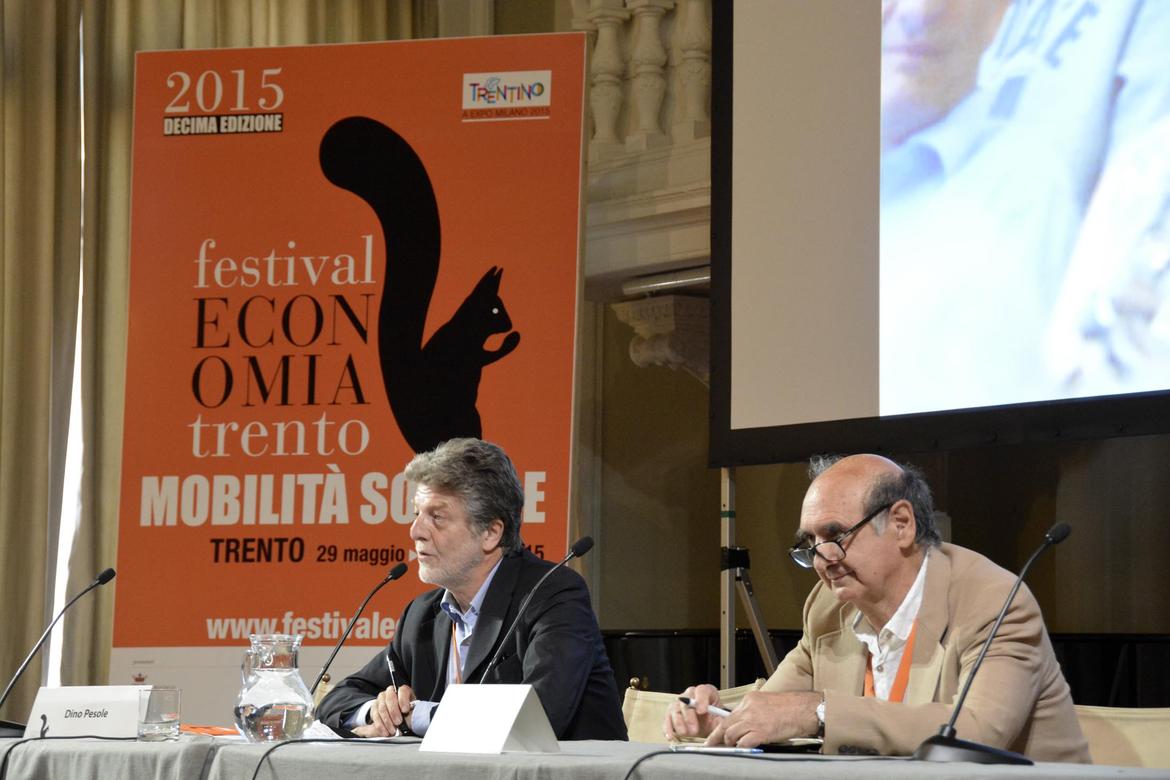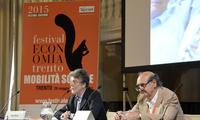
Alessandro Portelli used footage taken from a live video broadcast by one of the world's greatest rock stars, Bruce Springsteen to illustrate his presentation, introduced by the journalist Dino Pesole from "Il Sole 24 Ore". The music he chose was "The River" a emblematic song by the Boss (as his fans call him), a singer-songwriter who has always recounted the real, underlying America, made up of industrial exploitation and rural landscapes, in his songs.
The opening lyrics of The River are indeed more evocative than long discourses, when Springsteen sings "I come from down in the valley, where mister when you're young, they bring you up to do like your daddy done". The idea of a life that is ultimately already predestined, in which the future of young people depends on their parents' income, materialises clearly in the verses. Thus the American dream, which promised opportunities for all, ends up by being transformed into a nightmare, or to use the words of Stiglitz, into a myth that does nothing but increase inequality.
As highlighted by Alessandro Portelli, "in many of Springsteen's songs one can sense the disappointment with promises of social mobility, always flaunted but almost never maintained, a dream that is transformed into post-industrial landscapes made up of misery and hardship or rural areas full of desperation, like those memorably recounted in John Steinbeck's "The Grapes of Wrath".
In the same way, "The Great Gatsby", the novel by the American writer Francis Scott Fitzgerald, published in 1925, thus becomes a paradigm for American society in the 1920s but also for society today. In the book, in order to be able to fulfil his dream of marrying a rich girl, a poor young man, who will become the Great Gatsby, takes the only route possible in that period: organised crime, transforming himself into a gangster. Once again a shattered dream of social mobility and equality emerges, along with the almost insuperable gap between the rich and the poor. However, while it is true that promises often become broken dreams and burning disappointment in America, now as in the past, for both Springsteen and Fitzgerald it is necessary to keep on trying and believing, continuing to dream of a different and better future, because as the Boss sings, "if you stop dreaming you also stop living". -








